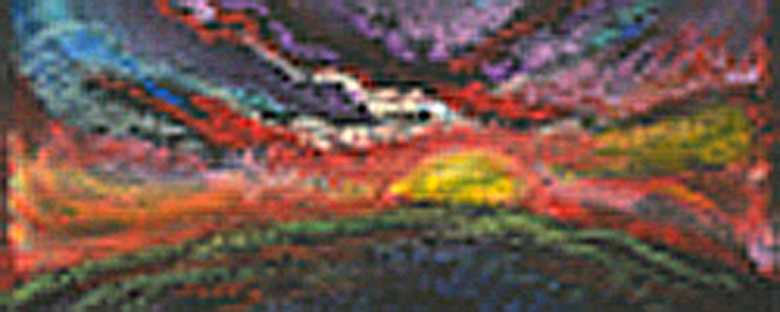Reviews
And God stepped out on space,
And He looked around and said,
“I’m lonely—
I’ll make me a world.”
—“The Creation”
Based on the eponymous poem by James Weldon Johnson, Will Vinton’s 9-minute short is the unfurling of existence. Narrated by James Earl Jones, whose earthy voice lends alternating power and tenderness to the process of universal inception, The Creation stands as an indelible achievement in the field of animation. For decades an industry dominated by Walt Disney and Edward Selzer, two men who’d essentially customized the craft of one-dimensional filmmaking for children, Vinton established new and revolutionary means of storytelling with earlier and evocative shorts like Closed Mondays in 1974, which earned him his first and only Oscar, and Rip Van Winkle in 1978.
Told through a stop-motion succession of clay paintings, The Creation follows God as He realizes there’s nothing to govern and care for. He is alone, surrounded by the resounding emptiness of space. The opening excerpt to this review, which doubles as the first line of the film, indicates His reason for Earth’s creation—loneliness. He fashions the sun from nothingness, producing a brilliant globe of light that explodes into shards of yellow and white, shining in flutters of motion. Next he molds our world, casting the hills and canyons with his footsteps; the oceans are born from a mere drop of spit. Soon, animals can be found roaming the lush and vibrant foliage. Yet God, seen only from the back, still finds Himself alone—this world, though fulfilling and wonderful, doesn’t satisfy Him. So he creates Man.
Two members of the film’s crew, animator Joan Gratz and composer David Friesen, are key to its significance. The clay paintings, designed and sculpted by a future Oscar winner, remains loyal to Johnson’s poetic intent. Gratz’s God is not the bearded titan of the Renaissance; instead, He’s a forlorn soul apprenticed to His own wants. Even in contemporary portrayals like Dogma and Bruce Almighty, God transcends the trivial pangs of human emotions. What Gratz does — and, in a sense, what Johnson did in 1927 — is depict God as a creature of intimate sensations. “In His own image” means something more to Gratz and Vinton than simply textures, tones, and features. It means every deluge of internal suffering and elation, of angst and tranquility. Similarly, God’s stirring together of our universe was not, in their minds, a majestic ballet of invention, but instead a Pollack-like burst of energy, with our world cast from rapid movements of the hand and mind. Just as the motions of a conductor direct the symphony, God’s gestures guide the formation of an entire existence. We are not a subject of steady contemplation come to fruition through years of planning—we are born of spontaneity.
Friesen’s soundtrack, which isn’t thunderous or drawn from theology but rather a fast-paced orchestration indicative of Caribbean calypso music, transforms The Creation into something more than an imaginative adaptation of Genesis. This is, on one level, a comment on art itself. Just as clay changes in the fingers of sculptors, dirt and rock and sand spill from the hand of God—mounds of lifeless, shapeless material that will one day sustain form and substance and life, but only through the inventiveness of an exceptional mind. But The Creation is also an elaboration on the idea of global brotherhood. Years before John Landis used a similar approach in his music video for Michael Jackson’s “Black or White,” Vinton acknowledges the concept that we’re all derived from one individual being, one source that both defies and encompasses race and ethnicity, through a montage of faces. Which begs the question, is this film a work of art or a comment on society? Has Vinton taken verse from a respected poet, one whose words call to mind both the struggles of man and the hardships of African-Americans, to make a compelling argument for tolerance? Though moviegoers may flock to Christian epics by men like Mel Gibson in search of purposeful guidance, there’s an equal amount of instruction, albeit possibly unintentional, to be learned from these nine minutes.
We don’t do comments anymore, but you may contact us here or find us on Twitter or Facebook.



